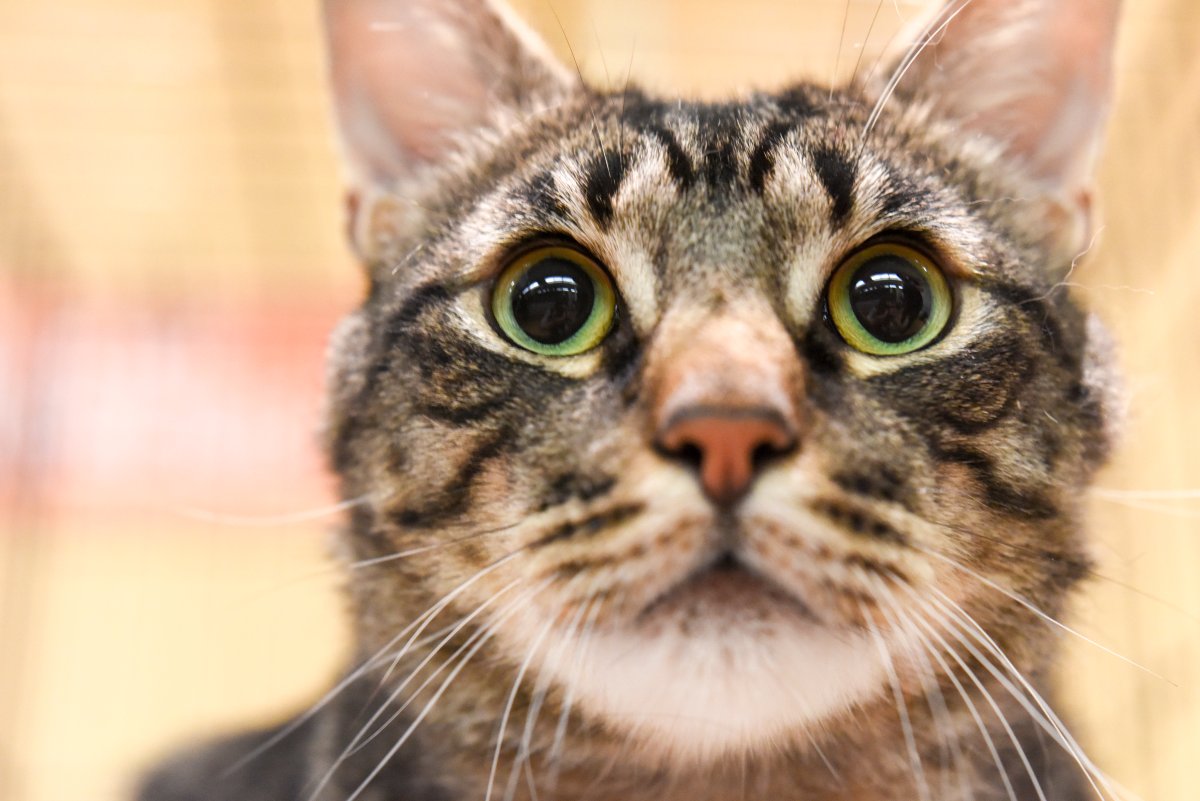A growing number of cities in the United States are not allowing pet owners to declaw their cats — with Denver being the latest municipality to ban the act.

On Nov. 13, Denver city council unanimously passed a bill that would ban declawing cats, making it the first city outside of California to do so.
In the U.S., declawing is prohibited in the cities of Los Angeles, San Francisco, Santa Monica, Berkeley, Beverly Hills, Culver City, West Hollywood and Burbank.
WATCH: International effort to stop declawing cats results in renewed calls to end practice in Ontario

The practice has already been banned in the U.K. and Europe. And now New York City and the state of New Jersey are also considering a law that would ban the practice.
Here in Canada, it is still legal to declaw your cat.
‘You’re removing their knuckles’
In March, the Canadian Veterinary Medical Association publicly denounced the practice of cat declawing, saying it causes unnecessary and avoidable pain.
Dr. Sherlyn Spooner, who helped develop the policy, likened declawing a cat to a person having the tips of their fingers cut off at the first joint.
READ MORE: Declawing called unethical, taken off the table at Regina vet hospital
Spooner said declawing is less common in Canada than it used to be, but there is still demand for the operation and veterinarians who are willing to do it. If people understood how declawing affects cats, including pain before and after surgery, they wouldn’t have it done, she said.
“We don’t even call it declawing anymore,” Dr. Enid Stiles, a veterinarian from a Montreal suburb, said. “We have decided to call it partial digit amputation. It’s like you’re removing their knuckles,” she said.
“It’s an amputation.”
Stiles said not only is the procedure painful, it also can lead to negative long-term effects, such as aggressive behaviour (biting), and increased urination and defecation.
WATCH: Halifax vets call for ban on ‘outdated, unnecessary’ declawing

It’s up to the province
It is up to regulators in each province to decide whether to ban the practice. Although the practice is still legal in Canada, it’s becoming more difficult to find a vet who would do it, according to Stiles.
“I have a distinct impression that for new veterinarians, coming right out of schools, more will not want to perform the procedure,” she said. Some veterinary schools have even stopped teaching the procedure, Stiles added.
Global News reached out to a number animal hospitals across the country and found practices still offer this service. And it did not have to be for medical reasons: a vet will remove a cat’s claws for behavourial reasons, such as scratching the couch.
However, veterinarians in Canada have taken it upon themselves to stop performing it.
WATCH: Secret camera catches abuse at dog groomers
Spryfield Animal Hospital in Halifax decided to take matters into their own hands years ago.
“We were being proactive,” the practice’s medical director Dr. Paul Kendall said.
“A lot of clients are against declawing cats. They think it’s cruel and inhumane. I think this movement now, because the Canadian Veterinary Medical Association brought it up, I think it’s just public opinion and the profession is pretty solidly behind the association for bringing this in,” he said.
He said their animal hospital refuses to do the procedure unless it’s medically necessary, such as in cases where a tumour is growing in the area.
- Roll Up To Win? Tim Hortons says $55K boat win email was ‘human error’
- Bird flu risk to humans an ‘enormous concern,’ WHO says. Here’s what to know
- Halifax homeless encampment hits double capacity, officials mull next step
- Ontario premier calls cost of gas ‘absolutely disgusting,’ raises price-gouging concerns
“It’s like taking this end of your finger off. Yes, you can get by with it, but you jump down on something or land on something, it’s going to be painful,” Kendall said.
Are there alternatives to declawing?
There are numerous alternatives to declawing your cat, according to Stiles.
“Scratching is a normal behaviour for a cat,” she said. “It’s them marking territory, so location is key. Know where your cat is scratching, and what they are scratching, and then put a scratching post in that area.”
You can also:
- Regularly trim your cat’s nails.
- Reward good behaviour with catnip and treats.
- Use double-sided tape on furniture.
- Get vinyl nail caps that glue on to your cat’s existing nails.
WATCH: See inside Vancouver’s popular cat cafe

— With files from Global News’ Jennifer Grudic




Comments